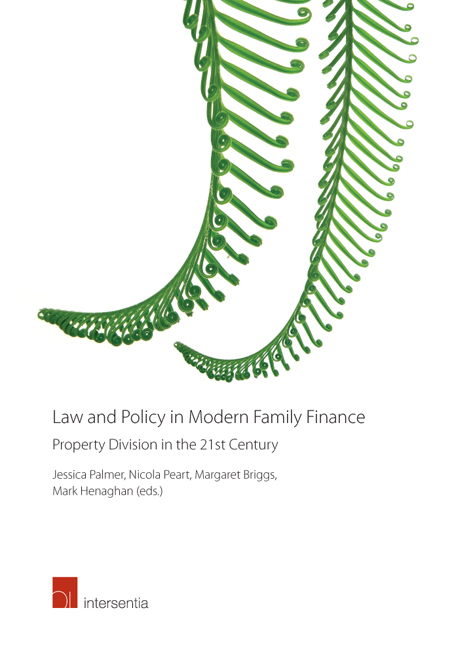Book contents
- Frontmatter
- Foreword
- Acknowledgements
- Contents
- Table of Cases
- List of Contributors
- Chapter 1 Introduction
- PART I WHO SHOULD BE COVERED BY A PROPERTY SHARING REGIME?
- PART II WHAT PROPERTY SHOULD BE COVERED BY A PROPERTY SHARING REGIME?
- PART III HOW SHOULD PROPERTY BE SHARED AT THE END OF A RELATIONSHIP?
- Chapter 11 Should the Regime be Discretionary or Rules-Based?
- Chapter 12 Sharing Family Finances at the End of a Relationship
- Chapter 13 Should a Property Sharing Regime be Mandatory or Optional?
- Chapter 14 Contracting Out of the Default Relationship Property Regime – Comparative Observations
- Chapter 15 Maintenance – Time for a Clean Break?
- Index
Chapter 14 - Contracting Out of the Default Relationship Property Regime – Comparative Observations
from PART III - HOW SHOULD PROPERTY BE SHARED AT THE END OF A RELATIONSHIP?
Published online by Cambridge University Press: 29 September 2018
- Frontmatter
- Foreword
- Acknowledgements
- Contents
- Table of Cases
- List of Contributors
- Chapter 1 Introduction
- PART I WHO SHOULD BE COVERED BY A PROPERTY SHARING REGIME?
- PART II WHAT PROPERTY SHOULD BE COVERED BY A PROPERTY SHARING REGIME?
- PART III HOW SHOULD PROPERTY BE SHARED AT THE END OF A RELATIONSHIP?
- Chapter 11 Should the Regime be Discretionary or Rules-Based?
- Chapter 12 Sharing Family Finances at the End of a Relationship
- Chapter 13 Should a Property Sharing Regime be Mandatory or Optional?
- Chapter 14 Contracting Out of the Default Relationship Property Regime – Comparative Observations
- Chapter 15 Maintenance – Time for a Clean Break?
- Index
Summary
INTRODUCTION – THE CORE OF RELATIONSHIP RECOGNITION LAW
The question at the heart of this paper is whether the parties of a legally recognised relationship should be permitted to opt/contract out of the default legal regime governing their property relations by entering into marital agreements (often also referred to as nuptial agreements). Unsurprisingly, the answer to that question depends very much on what legal consequences the underlying default system would bring with it – and what exact policies the jurisdiction in question pursues (or intends to pursue) with the default rules. As the purpose of this chapter is to offer some comparative observations on what is often simply referred to as ‘contracting out‘ (or opting out) of the default regime, it is therefore imperative to be aware of what the default rules are, taking into account the legal, social, historical, and political context of the jurisdiction in question. The rules on contracting out can only be understood against that background and, more importantly, the limitations that the jurisdictions have placed on this contracting out can only be understood against that background. These limitations reflect what, in that particular jurisdiction, is the absolute core of the law governing the relationship – the core which is so essential to the regulation of the relationship that it is not at the disposition of the parties and therefore cannot be opted out of.
TERMINOLOGY AND FOCUS OF THIS CHAPTER
Before describing the systems and explaining the rules on contracting out, it is necessary to say a few words on terminology. The title of this chapter speaks of ‘relationship‘ rather than ‘marital‘ property. In the twenty-first century, this increasingly will be the better term to use, with more and more relationships other than marriage being recognised by the law, including property consequences and/or regimes, in an increasing number of jurisdictions. Arguably, New Zealand has gone the furthest here: with regard to a central element of this chapter, namely the division of relationship property, only very few differences are now made between marriages, civil unions, and qualifying de facto relationships in New Zealand, all of which are open to couples irrespective of legal gender.
- Type
- Chapter
- Information
- Law and Policy in Modern Family FinanceProperty Division in the 21st Century, pp. 357 - 392Publisher: IntersentiaPrint publication year: 2017
- 1
- Cited by



